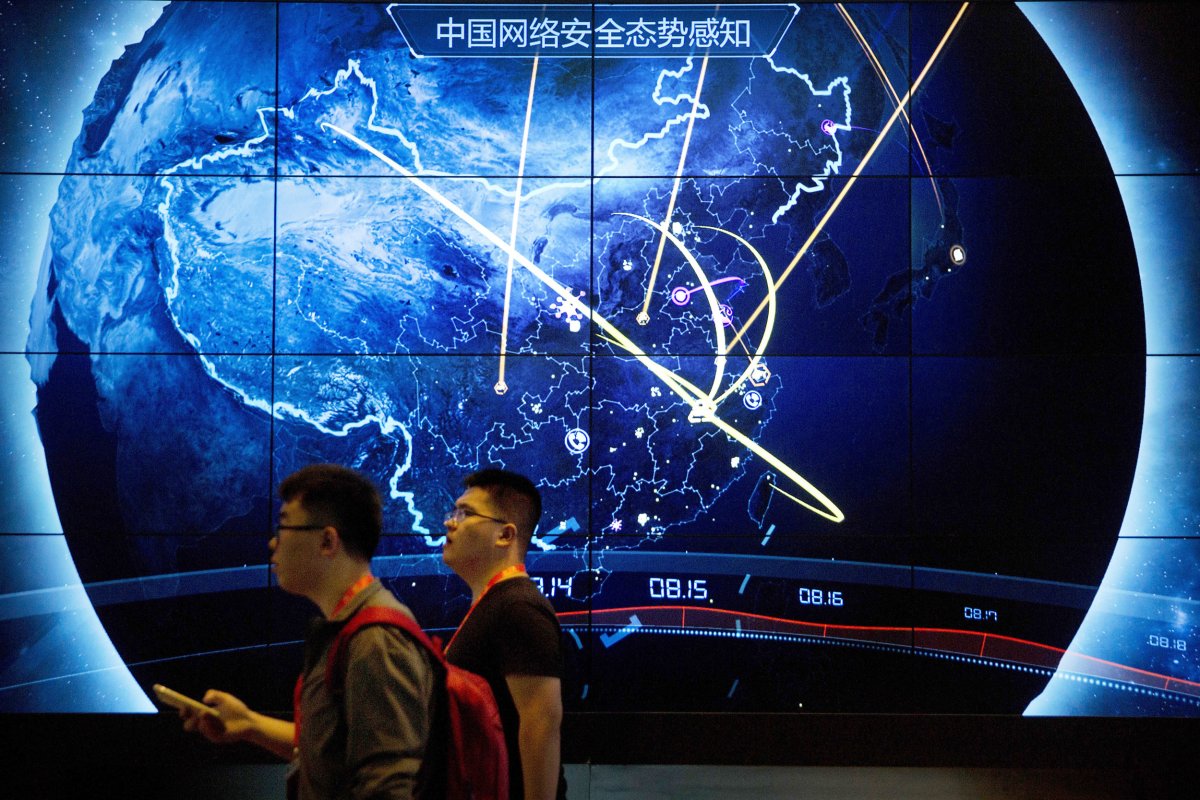The World Economic Forum's annual Global Risks Report released on Tuesday says the space race and cyberthreats are the newest risks to the global economy.
This year's report showed the space race, involving private corporations and governments, is creating an increased risk of congestion in the Earth's orbit due to the escalating number of objects being sent into space.
There's an increase in debris and a higher possibility of collisions due to the different space programs sending satellites and astronauts into space. Additionally, there are "few governance structures to mitigate new threats," according to the report.
The report also expressed concern over an increase in cyberattacks. The attacks are becoming more frequent and problematic after people shifted to online classes and work due to the COVID-19 pandemic. The higher number of constant online users increased security risks while hackers are attacking vulnerable targets, the report said.
"We're at the point now where cyberthreats are growing faster than our ability to effectively prevent and manage them," said Carolina Klint, risk management leader at Marsh.
The World Economic Forum typically releases the report at a summit with prominent world leaders and CEOs in Davos, Switzerland, but had to cancel the in-person meeting again due to the rise in COVID-19 cases. The report is created from a survey given to roughly 1,000 experts and leaders across the globe.

As 2022 begins, the pandemic and its economic and societal impact still pose a "critical threat" to the world, the report said. Big differences between rich and poor nations' access to vaccines mean their economies are recovering at uneven rates, which could widen social divisions and heighten geopolitical tensions.
By 2024, the global economy is forecast to be 2.3 percent smaller than it would have been without the pandemic. But that masks the different rates of growth between developing nations, whose economies are forecast to be 5.5 percent smaller than before the pandemic, and rich countries, which are expected to expand 0.9 percent.
Cyberattacks are becoming more aggressive and widespread, as criminals use tougher tactics to go after more vulnerable targets, the report said. Malware and ransomware attacks have boomed, while the rise of cryptocurrencies makes it easy for online criminals to hide payments they have collected.
While those responding to the survey cited cybersecurity threats as a short- and medium-term risk, said Klint, whose parent company, Marsh McLennan, co-authored the report with Zurich Insurance Group and SK Group.
The report's authors were concerned that the issue wasn't ranked higher, suggesting it's a "blind spot" for companies and governments.
Space is the final frontier—for risk.
Falling costs for launch technology has led to a new space race between companies and governments. Last year, Amazon founder Jeff Bezos' space tourism venture Blue Origin and Virgin Galactic's Richard Branson took off, while Elon Musk's Space X business made big gains in launching astronauts and satellites.
Meanwhile, a host of countries are beefing up their space programs as they chase geopolitical and military power or scientific and commercial gains, the report said.
But all these programs raise the risk of frictions in orbit.
Space exploitation is one of the areas that respondents thought had among the least amount of international collaboration to deal with the challenges.
Experts and leaders responding to the survey "don't believe that much is being done in the best possible way moving forward," World Economic Forum's managing director, Saadia Zahidi, said at a virtual press briefing from Geneva.
Other areas include artificial intelligence, cyberattacks and migration and refugees, she said.
The environment remains the biggest long-term worry.
The planet's health over the next decade is the dominant concern, according to survey respondents, who cited failure to act on climate change, extreme weather, and loss of biodiversity as the top three risks.
The report noted that different countries are taking different approaches, with some moving faster to adopt a zero-carbon model than others. Both approaches come with downsides. While moving slowly could radicalize more people who think the government isn't acting urgently, a faster shift away from carbon intense industries could spark economic turmoil and throw millions out of work.
"Adopting hasty environmental policies could also have unintended consequences for nature," the report added. "There are still many unknown risks from deploying untested biotechnical and geoengineering technologies."
The World Economic Forum still plans some virtual sessions next week.
The Associated Press contributed to this report.
Uncommon Knowledge
Newsweek is committed to challenging conventional wisdom and finding connections in the search for common ground.
Newsweek is committed to challenging conventional wisdom and finding connections in the search for common ground.
About the writer
To read how Newsweek uses AI as a newsroom tool, Click here.






